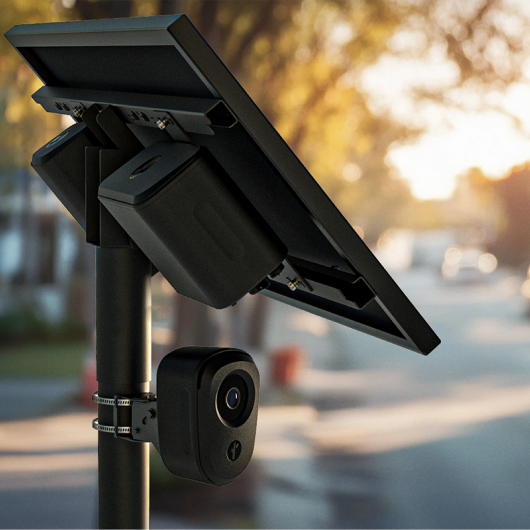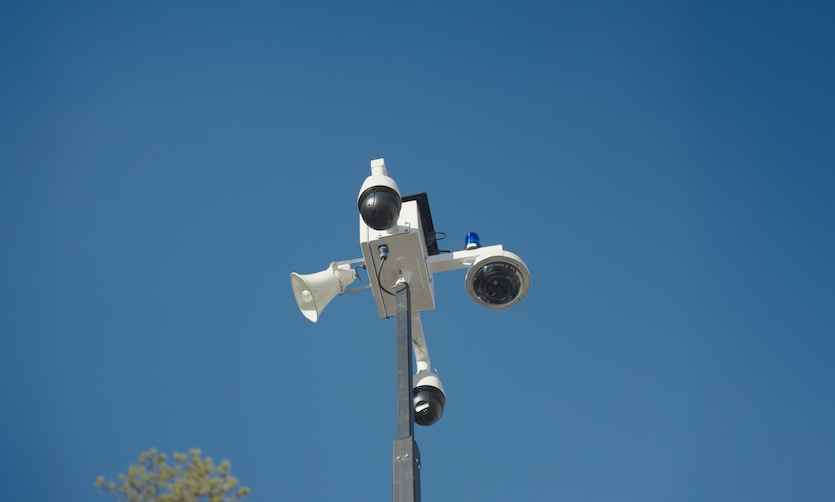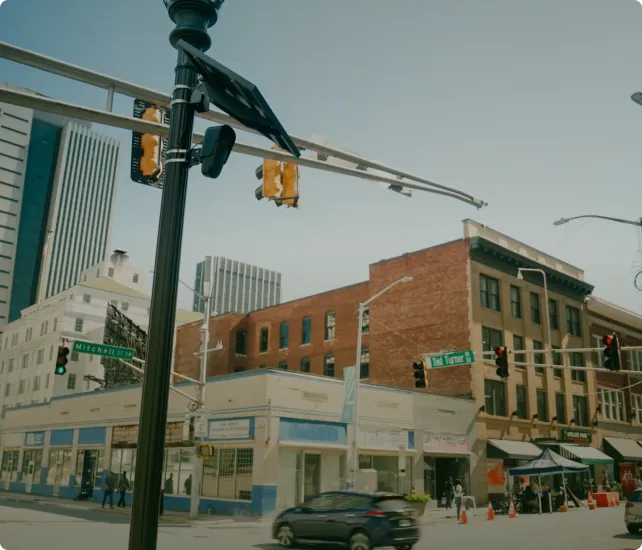


Setting the Record Straight: Statement on Flock Network Sharing, Use Cases, and Federal Cooperation
As the Founder and CEO of Flock Safety, I take nothing more seriously than the values we built this company upon — to give cities tools to uphold public safety, while enabling accountability and transparency. I spend time with my team thinking about these issues every single day: how to build our search interface, audit records, compliance tools, and data policies to allow individual agencies to police in the best way possible for their community — not as prescribed by us, a private technology company, but by the elected officials and individuals the tools actually serve. Public safety does not need to come at the expense of community values.
In the spirit of that transparency, and in response to recent reporting, I want to break down exactly how our product interface works and how we enable communities to enforce public safety as is legally and socially expected in their particular jurisdiction. But let’s start with recent clickbait-driven reporting and social media rumors that mischaracterize Flock’s LPR devices.
Claims of Flock Misuse — And Correcting Misinformation
Correcting the Women’s Healthcare Falsehood
Earlier this month, there was purposefully misleading reporting that a Texas police officer with the Johnson County Sheriff’s Office used LPR “to target people seeking reproductive healthcare.” This organization is actively perpetuating narratives that have been proven false, even after the record has been corrected.
According to the Sheriff in Johnson County himself, this claim is unequivocally false.
The Sheriff’s Office has reported that a local family called to ask for help – a relative had self-administered an abortion and subsequently ran away. Her family feared she was hurt and asked the Sheriff’s deputy to search for her to the best of their abilities. Deputies performed a nationwide search in Flock, the broadest search possible within the system, to try to locate her as quickly as they could. Luckily, she was found safe and healthy in Dallas a couple of days later.
No charges were ever filed against the woman and she was never under criminal investigation by Johnson County. She was being searched for as a missing person, not as a suspect of a crime.
Following this event, Flock conducted an audit of all searches conducted on Flock LPR and found not a single credible case of law enforcement using the system to locate vulnerable women seeking healthcare.
Local Autonomy in working with Federal Agencies
In the U.S., we have a system that puts much of the responsibility for public safety on local law enforcement, and that is who Flock is built to serve. We work with thousands of local Police Departments and Sheriff’s Offices across the country, in red states and blue, rural and urban communities.
In some of these communities, local law enforcement will determine that they need to cooperate with federal law enforcement on specific cases. There are many use cases for this; for example:
- Child Sex Trafficking: Last summer, during the NFL Draft in Detroit, MI, local police in Taylor collaborated with Homeland Security Investigations (HSI) to crack open an online child sex trafficking ring. The investigation, which used Flock’s LPR devices, led to the arrest of 7 individuals who were preying on children.
- Massive Retail Theft Operation: The Denver branch of the FBI collaborated with local law enforcement and used Flock technology to find the suspects in a “brazen” $12M jewelry heist from a Denver mall.
- Electronics Burglary Criminal Enterprise: In a 6-month collaboration between local police in Gwinnett County, GA, the FBI, DEA, and Homeland Security, law enforcement were able to identify a massive burglary operation and recover over $6M in stolen property.
In all of these cases, local law enforcement, who are customers of Flock, chose to work with federal authorities for the safety of their communities. This was not a “back door” into Flock, as some in the media have claimed — these cases and many others represent active choices, within the boundaries of the law, made by local police to protect the people they are sworn to serve.
Many agencies collaborate with the Department of Homeland Security on serious criminal investigations that have nothing to do with civil immigration enforcement. In some states and jurisdictions, local law enforcement work with federal authorities to enforce immigration offenses. In other states and jurisdictions, that is illegal per state law or considered socially unacceptable.
The point is: it is a local decision. Not my decision, and not Flock’s decision.
The Flock LPR System: Understanding Sharing, Search, and Audits
Sharing Camera Data: Flock Safety’s License Plate Reader (LPR) platform is made up of individual cameras that submit data about cars to a user interface, with that data owned by each individual customer. Each LPR in the customer’s network captures vehicular evidence to solve crime.
This limited, defined network has a system administrator, who can share the data collected by their devices with other law enforcement agencies if they choose to do so. Time and time again, we’ve seen why sharing data between jurisdictions is so important – it enables law enforcement to locate kidnapped children across state boundaries, find missing senior citizens, and solve cross-jurisdictional narcotics and burglary cases.
There are customizable options for data sharing amongst agencies:
- 1:1 Sharing – police departments can choose to share camera access with other PDs, in order to solve cross-jurisdictional crime, on a 1:1 basis (one PD to one PD), within a specific geographic radius (sharing with all agencies within 10 miles, for example), or within their state. Agencies can also elect not to share any data outside their own agency, or remove themselves from sharing at any time.
- National Lookup – police departments can choose to join Flock’s National Lookup network, which enables a unique type of sharing. Specifically built for far-reaching crimes like human or narcotics trafficking and missing persons, National Lookup allows police to search for the full plate number of one specific, known license plate (only a complete license plate) across cameras that other police departments have also opted in to share with this network.
Some states, like California, do not allow any sharing across state borders. For those states, Flock has disabled National Lookup to make compliance easier. And private customers never have access to law enforcement data.
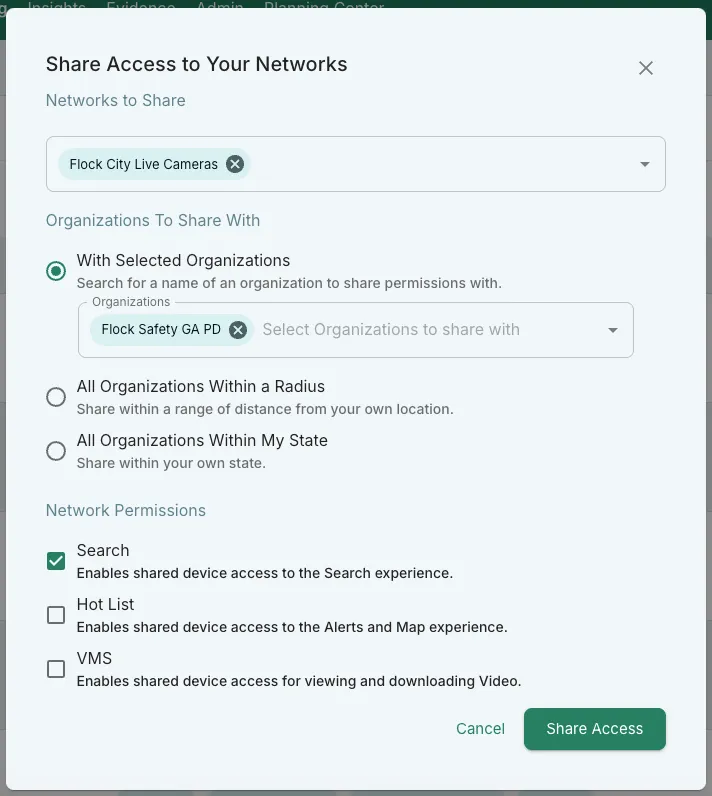
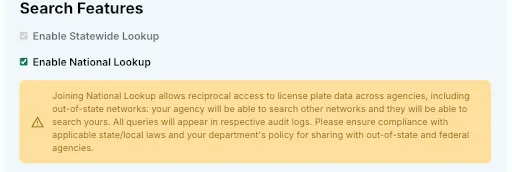
Conducting LPR Searches: When an agency conducts a search in the Flock system, whether only on their own cameras or on shared cameras, a “search reason” is required, every time. Flock provides options for a drop-down menu of search reasons corresponding to specific use cases, and a free text field for a case number.
Agencies should prescribe, in their LPR policies, how users should populate that search field.
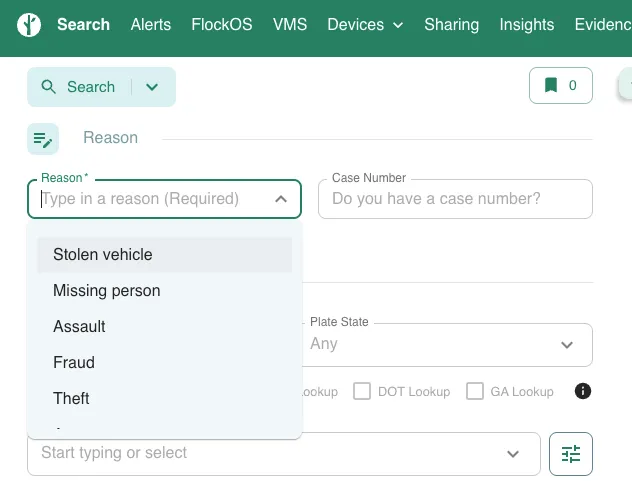
Why Auditing is Crucial: To underscore accountability, every single search conducted in the Flock LPR system is saved in an audit report. Every time a search is run on the Flock system, that search and search reason is preserved permanently in the audit trail of every agency whose camera was included in the search.
Those searches are viewable in an agency’s “network audit” and available for regular oversight: to command staff, to elected officials, to communities.
This is part of our commitment to transparency and accountability from the beginning of the design process.
To be clear, this is not a legal requirement for Flock in most jurisdictions, nor is it something that all LPR vendors do. Flock makes auditing the default because of our commitment to accountability and transparency, enabling the kind of oversight that some of LPR’s most ardent detractors actually call for.
Best Practices for Accountable LPR
We strongly believe that LPRs, like all public safety technologies, are best used in concert with responsible policies, created by each community in accordance with its own laws and societal values. That is why I have a team at Flock that has stood in front of more than a thousand city councils to answer their questions before voting to approve using our technology. Communities should be able to determine their data retention limits — Flock’s default is 30 days, setting a shorter standard than has been commonplace before Flock was founded, but that may not be right for every community.
Each city should lay out acceptable and unacceptable use cases for LPR, as determined by the laws and values of its jurisdiction. And law enforcement agencies should regularly conduct audits to ensure all users are complying with the letter and spirit of those policies.
We will continue to release tools purpose-built to enable compliance. These include:
Illinois Policy Attestation (Launched Nationwide in January 2024)
Illinois legislators passed a state law that went into effect in 2024, which prohibits out-of-state law enforcement agencies from searching Illinois LPR cameras for certain uses; namely, immigration offenses, gender affirming care, and abortion. Flock collaborated with Illinois legislators, law enforcement, and advocates to help elected officials in Illinois leverage LPRs in a way that reflects their values. Flock designed an in-app attestation workflow that required agencies outside the state of Illinois to attest to comply with this Illinois policy when accessing Illinois data either by direct sharing or via our lookup tools.
Proactive Search Term Tool (Launched First In Illinois in June 2025)
After discovering that certain non-Illinois agencies were using impermissible search reasons to access Illinois data, we released a new feature to automatically flag and exclude any search of Illinois camera data with terms that indicate an impermissible purpose. This proactive measure significantly reduces the risk of misuse, whether intentional or inadvertent. We look forward to bringing this solution to more jurisdictions that want it in the coming year.
Allowing Agencies to Require Case Numbers (Coming In August)
To promote additional accountability, prevent misuse, and better facilitate the identification of unauthorized searches, we are also instituting an option for agencies to elect to require a case number for any searches conducted in the system.
Proactive Auditing Alerts (Coming by End of 2025)
To support agencies with limited resources for audit monitoring, we are developing a new AI-based tool that:
- Identifies unusual or suspicious search activity,
- Sends real-time updates to administrators, and
- Enables proactive compliance monitoring without manual review burdens.
This tool will help agencies maintain transparency and accountability at scale.
Flock Safety Does Not Write the Criminal Code – But We Enable Oversight for Democratically Elected Governing Bodies
As a private technology company of around 1500 people, Flock cannot determine the criminal codes or what is enforced. We rely on the democratic process, on the individuals that the majority vote for to represent us, to determine what is and is not acceptable in cities and states.
However, we can and ARE building a strong set of guardrails and accountability-by-default features to ensure that local agencies can always be in compliance with the laws of their particular jurisdiction. And if compliance of those laws is in question, we’re one of the vendors in the industry that requires transparency within our platform to hold users accountable.
We have dedicated resources across Engineering, Product, Policy, Legal, Operations and other teams to ensure that the nuances of specific laws governing LPR data and use can be followed in California, Illinois, Virginia, and other states. We have shipped these updates faster than any other LPR vendor.
The fact is, these tools are going to be used by police – and in a world where law enforcement staffing is tight and there is still crime that hurts communities, we fundamentally believe that our police should have access to the best technology. All people deserve the right to be safe where they live, work, and raise a family.
For our part, we commit that communities will be able to utilize our life-saving technology, while remaining in compliance with local mandates, state laws, and, perhaps most importantly, their community values.
Signed,
Garrett Langley,CEO and Co-Founder of Flock Safety





Protect What Matters Most.
Discover how communities across the country are using Flock to reduce crime and build safer neighborhoods.

.webp)



